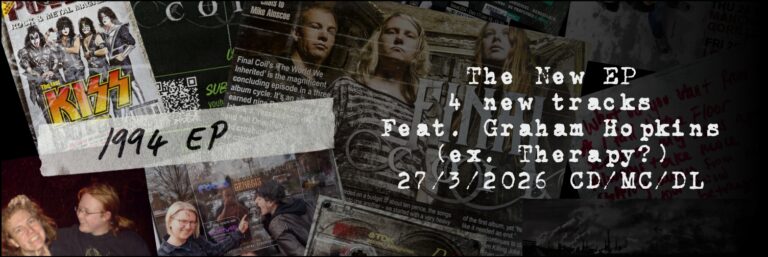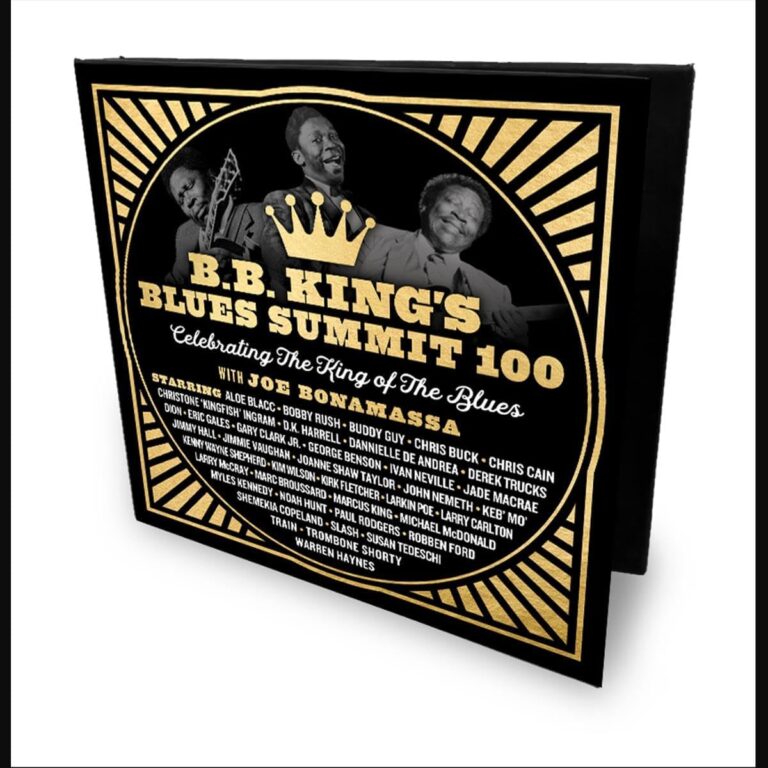
While the media has often entertained the intense schadenfreude of a ‘build them up, knock them down’ mentality, the increasing ability of both fans and foes to enter the fray via social media has exacerbated the approach. This is nowhere as obvious as with Trivium, a band who made the seemingly fatal mistake of promoting their music with youthful self-confidence and who have been paying the price ever since. As a result, the band have found themselves almost trapped in a cycle of adoration and castigation, with last year’s phenomenal What The Dead Men Say only the latest in a line of albums proclaimed to be a “return to form”. Yet, while the temptation is to wish for a band to simply repeat their greatest success, Trivium’s steadfast refusal to take the easy route is one of the many ways in which the band have defied the odd critical mauling to emerge stronger, and with a back catalogue that has made them a superlative live act.
Making good use of the enforced downtime of Covid, Trivium are back with a new album after just eighteen months but, if the band have moved quickly, it is because of circumstances and not because of any compromise on quality. Maintaining the services of the ever-reliable Josh Wilbur, the band showcase their continued artistic growth over the course of nine bruising tracks. Opening the album, long-time friend Ihsahn joins the fray with the appropriately cinematic X. A short, neo-classical piece, it proves surprisingly haunting, recalling the soundtrack work of Elliot Godenthal before segueing directly into the title track. Opening as a straightforward thrash assault, In The Court Of The Dragon initially harks back to the band’s formative years, only to indulge in melodic asides more reminiscent of the much maligned The Crusade and the sort of chunky breakdown found on In Waves. In other words, the track works both as a full-blooded entrance for the band and as a comprehensive nod to the band’s storied past. Next, the imperious riff that opens Like A Sword Over Damocles captures the attention immediately, while Alex bent’s explosive performance behind the kit is nothing short of devastating. With a suitably addictive chorus, Like A Sword… shows that the band have further built on the confidence and maturity displayed on What The Dead Men Say, and it’s easy to imagine the massed vocals filling entire arenas when the band return to the road. Based around a sweet, mid-tempo riff Feast Of Fire has a more classic rock vibe to it, drawing on a mix of influences from Anthrax and Dio via Maiden and Metallica. Matt’s clean vocal works particularly well here, although it’s one of those tricky Trivium tracks that promises a lighter touch, only to get steadily heavier as it progresses. In contrast, A Crisis Of Revelation starts heavy and gets heavier, with some awesome guitarwork on display amidst the pummelling percussive waves unleashed by Alex.
Probably the biggest surprise on the album is the subtle, slow burning The Shadow Of The Abattoir, which sees Matt indulge a more gothic vocal tone than he’s previously displayed, while the band craft a soundtrack to match. A melodramatic track that harks back to the early Maiden albums, it says much of the band’s current surfeit of inspiration that they’re still capable of surprising their fands some ten albums into their career and it stands as something of an album highlight. Rather than compete with the epic scope of The Shadow Of The Abattoir, No Way Back Just Through is simply a competent bruiser, although it offers a compelling chorus, before a crushing barrage from Alex leads into the thrashtastic Fall Into Your Hands. A strong track that sees the band letting loose, Fall Into Your Hands features a high-octane vocal performance, not to mention some typically explosive fret work. Even here, however, with the album approaching its end, the band still have a few surprises up their collective sleeve, with an interesting gothic interlude adding further depth without sacrificing any of the weight. Following on from the previous track’s orchestral coda, the savage assault of From Dawn to Decadence is almost wholly unexpected, the band whipping up a storm that seems to envelop all in its path. It leaves the way clear for album closer The Phalanx, an ambitious finale that throws strings, hulking great melodies and gargantuan riffs into the blender, with typically seismic results. Lengthy and, once more, with an eye to the cinematic, it’s a fantastic conclusion to an album in which the band consistently challenge themselves to outdo all that has gone before.
By now, you know if you like Trivium or not. Whether you picked up on the band more recently, thanks to the waves of (fully justified) adulation that met The Sin And The Sentence and What The Dead Men Say, or whether you’ve been there since the start, In The Court Of The Dragon is another example of the band’s ability to effectively synthesise their influences into something that sounds like Trivium, nothing more, nothing less. Arguably a better album than its predecessor, there’s a sense that Trivium are, at long last, comfortable in their own skins, exhibiting a grand ambition that sees a number of the songs stretch towards the epic. The price of success is that there will always be detractors, but Trivium have worked hard to hone their skills and they have more than earned their place alongside the top tier of metal bands treading the boards today. 9/10



